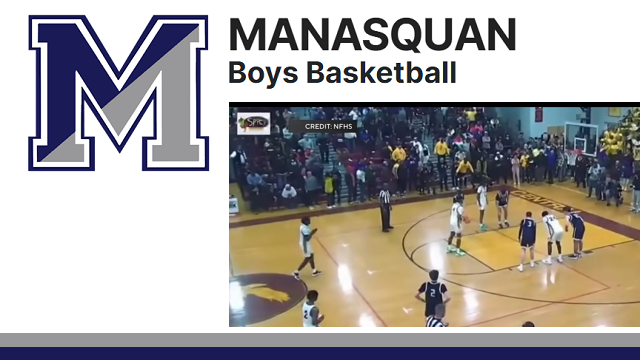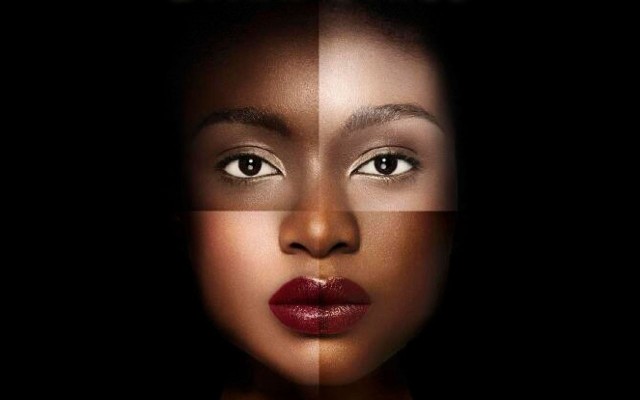Did Anti-white, DEI Bias Steal a State Final Spot From a White Basketball Team?

Some say it was the worst call they’ve ever seen in high-school basketball.
The scene was the recent NJSIAA Group 2 state semifinal game between New Jersey team Camden — a powerhouse that hadn’t lost to another NJ public-school squad in five years — and underdog Manasquan. Down 46-45 after Camden player Alijah Curry sank a couple of free throws, Manasquan drove down the floor with 5.8 seconds left on the clock. One of its players took a long shot, which bounced off the rim — into the waiting hand of teammate Griffin Linstra, who laid the ball up through the hoop, releasing it with 0.6 seconds left on the clock.
The Central Regional High School gymnasium erupted in celebration, with Linstra’s shot being called good. But then it happened.
A Camden coach ran over and tapped one of the exiting officials, Kevin Torres, on the shoulder, and “a group of Camden coaches pleaded for the referees to meet,” reported NJ.com. The refs then consulted for a short time — and overturned the call. Incredulity among sober observers was the result.
Then there was a secondary result: accusations of anti-white bias.
You see, Camden appears an entirely black team, while Manasquan appears entirely white.
Know that subsequent video review left no question that the call was errant. “In an email to the NJSIAA [New Jersey State Interscholastic Athletic Association], cited in the legal papers, Torres admitted his call was wrong after seeing videos of the play,” NJ.com also writes. The NJSIAA made the same admission and issued an apology.
So the whole situation was most odd, indeed. As NJ.com further related, the “sequence of events” that led to the reversed call “is not standard…,” and a veteran official “told NJ Advance Media on Tuesday morning, ‘That [ref group] conversation never should have happened.’”
Manasquan appealed the decision and even filed a lawsuit to delay the championship game, scheduled for four days later (3/9), until the matter could be settled. But despite its apology, the NJSIAA “pointed to its bylaws that say once the referees leave the court after a game, the final score is official and cannot be appealed,” NJ.com tells us. As for the lawsuit, a judge rejected Manasquan’s request.
The CBS News segment below includes the video evidence of the blown (biased?) call.
This may not be popular, but I understand NJSIAA’s decision. Rules are rules, and if they dictate that a game’s outcome is to be considered irreversible once the referees depart, this standard must be followed. The rules can be changed if they’re deemed insufficient, of course. But our society’s increasing disregard for rules and laws (as reflected in the ignoring of 2020-election ballot standards) is a sign of civilizational decline. I also accept the judge’s ruling: It’s not a good idea having courts make any and all societal decisions from the monumental to the mundane.
What I don’t accept is the racial double standard apparent here. Good luck finding mainstream media that even allude to it; anti-white prejudice is their Voldemort of biases. However, the blogosphere addressed it, as did Internet commenters.
“A DEI call if there ever was one,” wrote a YouTube poster here. (Another respondent then asked him what DEI was, proving that Rip Van Winkle wasn’t alone in being able to sleep 20 years straight.)
“Can’t let the white kids win,” opined a tweeter on X.
“-2pts for white privilege,” stated another.
And while we can’t read minds, five questions do suggest themselves. Were the situation reversed:
- Would the Manasquan coaches have similarly importuned the refs to reverse their call?
- If they had, would the officials have likewise complied?
- If so, would the story’s racial aspect be ignored by media?
- Would the NJSIAA have still adhered to their no-reversal ex post facto rule?
- Would the judge still have rejected an appeal?
My answers:
- This would’ve been less likely.
- No, the probability is vanishingly low.
- Not a chance.
- Probably, but it’s not a given.
- Most likely.
It’s hard to imagine the refs reversing such a call for the white team. And had they, the media would’ve made a federal case out of it, screaming “Racism!” all the way. The pressure on the NJSIAA would’ve consequently been extreme, too, which is why we can’t be sure they would’ve taken the same principled rules stance.
To be clear, I think it’s unlikely the refs were purposely biased. In all probability, however, politically correct conditioning and social pressure — fashionable prejudice — did cloud their judgment. (The Left calls this “unconscious bias.”) Remember that many today are programmed to respond to and be intimidated by black grievance; no one wants to be that guy who robs a dominant black team of a title with a possibly bad call (that’s a career-ender). I also suspect that the errant decision reflects our time’s emotionalism, where principle is subordinated to feelings.
After all, what could the Camden coaches have said when pleading their case that was so convincing? “The shot was after the buzzer!”? That they claimed to have seen it differently than the refs is unsurprising and is neither proof nor even an argument. I mean, if non-official feedback matters, why didn’t the refs then just take a poll of all the players and spectators present?
Of course, with all our country’s problems, this is small potatoes. Significant, however, is what this incident may be an example of — that very real phenomenon called “black privilege” (see Fani Willis et al.),
Oh, Camden would go on to “win” the championship game. It’s a victory that should forever be accompanied by history’s biggest asterisk.
Contact Selwyn Duke, follow him on X (formerly Twitter), MeWe or Gettr or log on to SelwynDuke.com
©2024. Selwyn Duke. All rights reserved.
RELATED VIDEO: Homeschooling can prevent DEI from reaching children

